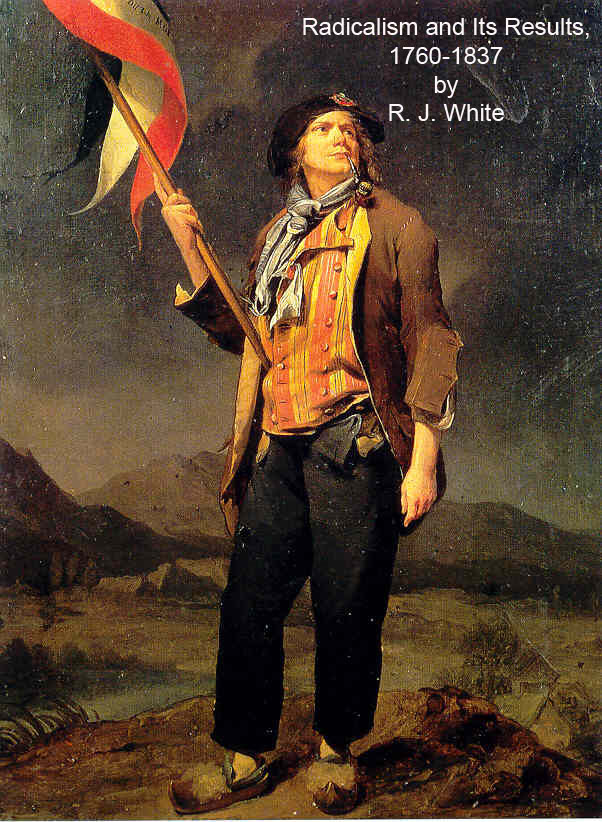Radicalism and its Results, 1760-1837
Classic Pamphlet

Perspectives and Opinions
Radicalism with a large "R", unlike Conservatism with a large "C" and Liberalism with a large "L", is not a historical term of even proximate precision. There was never a Radical Party with a national organization, local associations, or a treasury. But there were, and there are, "Radicals", generally qualified with adjectives like "Philosophic", or "London", or "Westminster", or even (if we are to believe Disraeli) "Tory".
In most respects the historian does better to talk or write of "the Radicals", or even of "a Radical", for although the breed may be a genus containing species, the individual is the proper subject to be studied. Radicalism is like Buffon's "Nature", a truly nominalist concept, scarcely susceptible at all of universal categories or classification. Sir Walter Scott took the name "Radical" to be a pseudonym for any fellow in a ragged coat or breeches, like "Sans-culotte".
Charles Dickens, as a child born in 1812, knew that there were terrible things as Radicals, and imagined them to be "a terrible banditti", something to be prayed against. All he could make out about "Radical principles" were tenets "that the Prince Regent wore stays: that nobody had any right to any salary: and that the army and navy ought to be put down" Harriet Martineau, looking back from 1849, recalled the terror inspired in the bosoms of young ladies by Radicals of Regency, those prodigious "radical forces that were always heard of but never seen", so that "even in the midst of towns, young ladies carried heavy planks and ironing -boards, to barricade windows in preparation for sieges from thousands of rebels whose footfall was long listened for throughout the darkness of the night..."
Yet it was Miss Martineau who recorded for us the birth-date of "Radical" as a substantive instead of merely as an adjective of abuse in vocabulary politics. "It is stated to have been now," she reports of the year 1819, the year of Peter loo, "that the Reformers first assumed the name Of Radicals." Samuel Bamford, the Radical weaver of Middleton in Lancashire, records that it was in this year also that "females voted with the men at the Radical meetings". Evidently the name caught on from the moment women took it up...
This resource is FREE for Secondary HA Members.
Non HA Members can get instant access for £3.49

